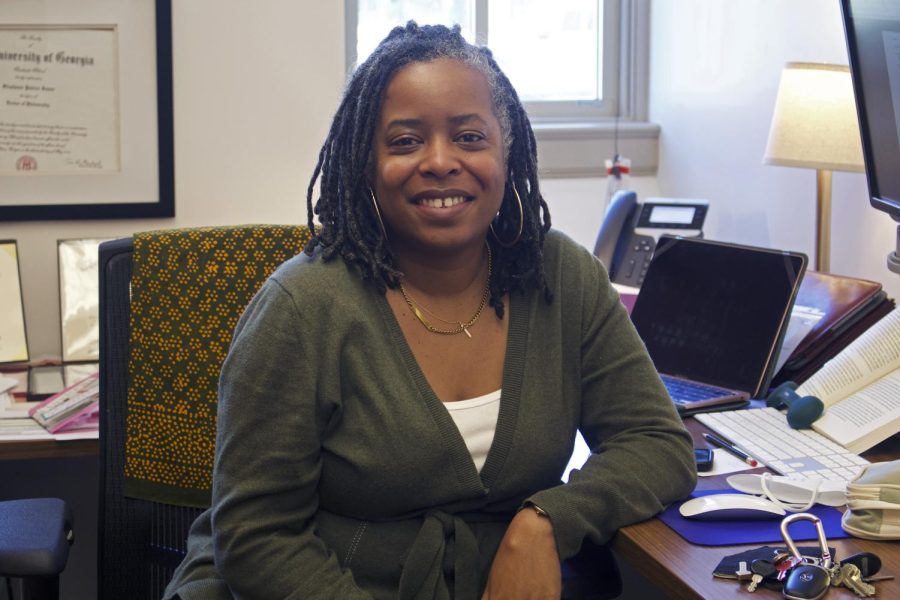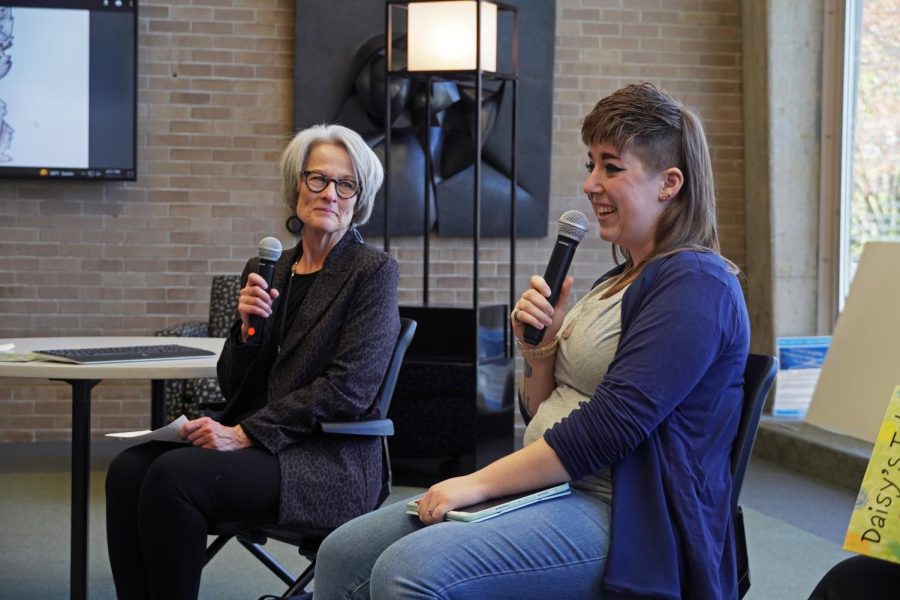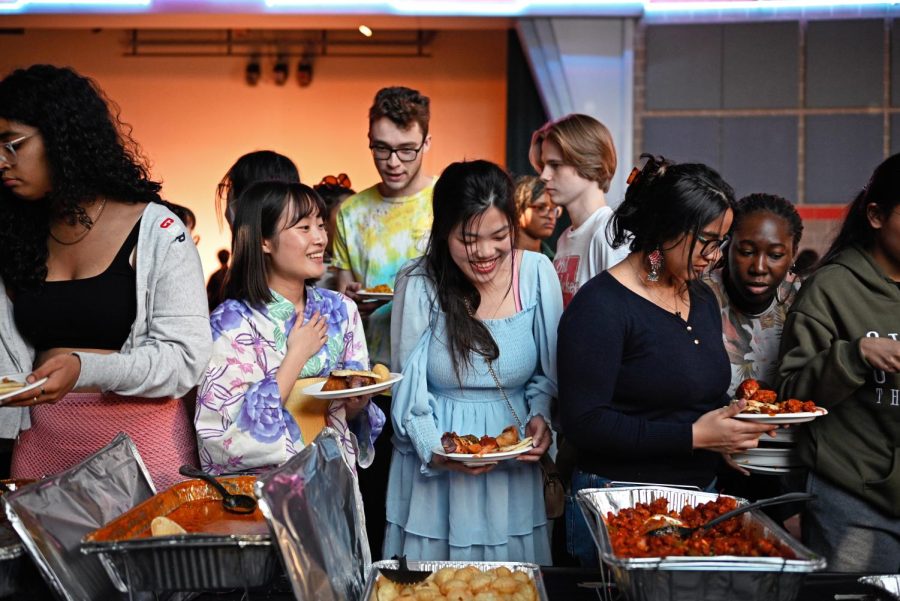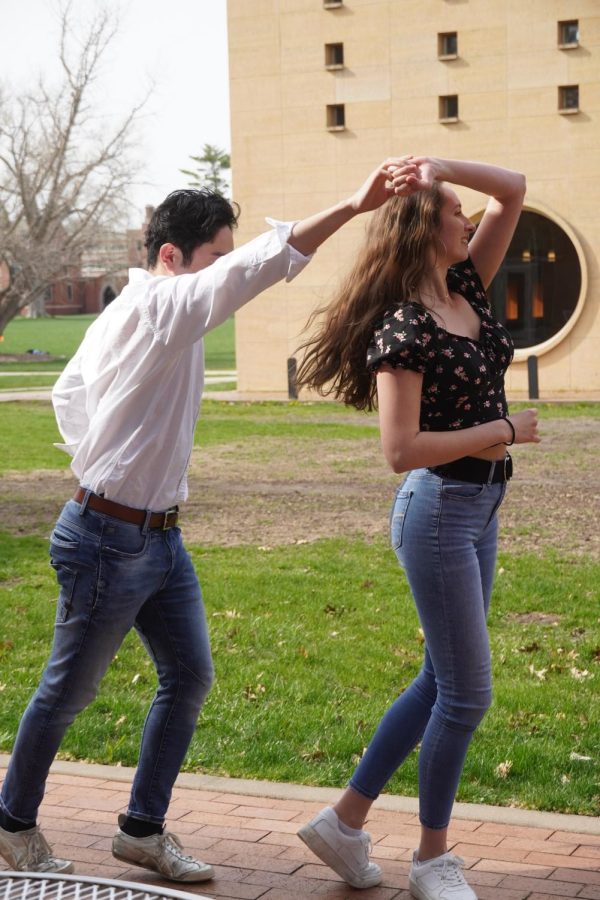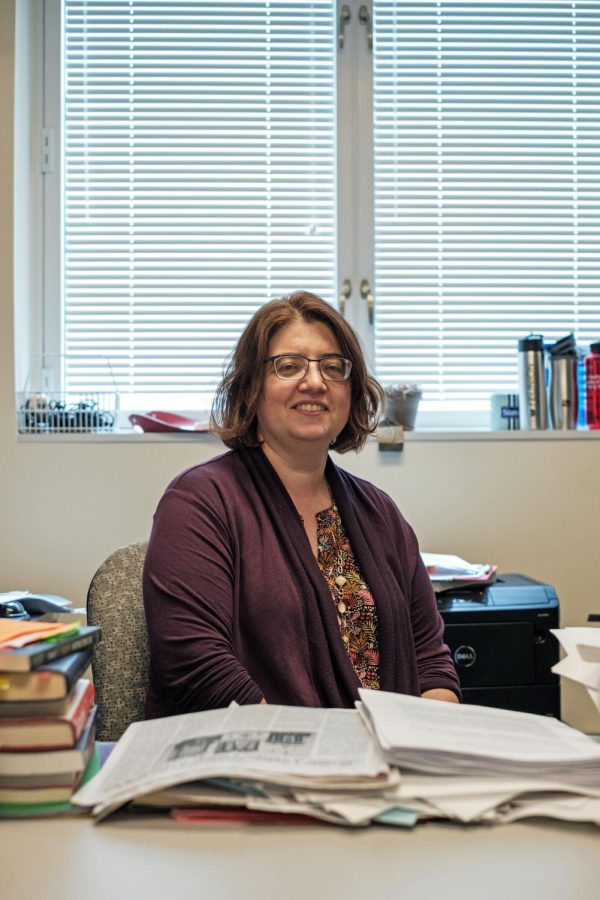Leadership turnovers, staying accountable, being inclusive, unprecedented times – in this unprecedented world, these are not unprecedented phrases. After another SGA election cycle, new President Fernando Villatoro `22, VPSA Andy Kenley `22, and VPAA Ashton Aveling `22 are considering what their first steps will be amid a new administration, a pandemic and a hybrid Grinnell campus. Better internal organization is currently their key goal.
In interviews with the new executives, all three note the increased demand for community building, particularly with the new disconnects between class years. However, before reaching out for more student connection, they want to create a solid foundation through a new constitution first.
Because current president Lana Katai `21 is graduating early, Villatoro and Aveling are stepping into their positions in Spring Term 2 (Villatoro becoming president, and Aveling filling Villatoro’s current role as VPAA). Due to this unorthodox transition, they have more time to plan for the next academic year. Already in the midst of multiple meetings and projects, Villatoro and Aveling feel the pressure of setting the right precedents. And one of those new precedents is creating new chairs in the cabinet.
“The VPAA, historically, has been severely, severely, severely overworked,” said Villatoro. “In terms of having to manage 100-plus SEPC members, being a voting member on different committees with faculty, … being an executive to take care of SGA, being the chief liaison for academic concerns, all these things are full time jobs.”
Having more people being in SGA, he said, will create better support systems and a better safety net.
Currently, the plan is to split the diversity and outreach coordinator position into one diversity chair and one outreach chair, the student services seat into a services chair and a resources chair and to create a third treasurer, a second ACE chair and three new conduct chairs. In addition, the executives will be revamping the Judiciary and Oversight Committee. They will take a closer look at the committee’s responsibilities as an accountability mechanism to make sure that SGA sticks to its constitution, and to its primary role: advocacy for all, and they do mean all, students.
With this committee keeping a close watch on SGA, the executives said they feel better prepared to tackle the larger issue of constitutional reform. The SGA constitution has two parts; the first addresses how SGA functions and its purposes (this is the constitution itself), and the second contains the bylaws, which regulate the internal structure of SGA and how representatives’ duties are carried out.
In order to add the new positions, only the bylaws need to be changed through a vote by the student senate. But to change the constitution itself, SGA must ask the entire student body to vote; to pass the changes, at least 20 percent of the student population must respond, with two-thirds agreeing to the changes.
The bulk of the new executives’ proposals have to do with updates; some parts of SGA do not work together anymore and others have different procedures. The main critique of the Senate was the amount of red tape holding proposals back.
“I’ve seen incredibly capable students – students who are passionate and dedicated and brilliant – fall short of representing and advocating for students because of poor structures,” said Aveling. “If there’s anything I’ve learned from being a student at Grinnell, it’s that people are constrained and shaped by the systems that exist. And being able to proactively work to change those things hopefully means that [SGA] can do a better job.”
The new executives also noted the difficulties in establishing long-lasting institutional memory, what with the loss of student leaders each spring when individuals graduate. It is more important than ever, Villatoro said, to reform the constitution to become a strong foundation moving forward so students can be supported by a strong system.
However, creating new positions does not necessarily mean a more inclusive SGA. During the fall, the Multicultural Leadership Council had difficulties in appointing students to positions, mainly due to students struggling to keep up with the new academic format, leading to less student involvement overall. In addition, international students who do not live in the US are not eligible to work for SGA as they cannot be paid for their work, per College policy, decreasing the pool of available applicants.
“The lack of resources is not for lack of trying,” said Kenley. Speaking to all students, he added: “I hope you will hold me accountable.”
























































